Draper Hills Summer Fellows Class of 2009
Draper Hills Summer Fellows Class of 2009
Guillermo Jorge (Argentina) | Lusine Hakobyan (Armenia) | Fariz Ismailzade (Azerbaijan) | Sonam Tshering (Bhutan) | Dajun Zhang (China) | Tosi Mpanu-Mpanu (Democratic Republic of the Congo) | Wafaa Osama (Egypt) | Tamar Zhvania (Georgia) | Rizgar Taha Hammed (Iraq) | Driton Qeriqi (Kosovo) | Malcolm Joseph (Liberia) | Oyuntsetseg Khurts (Mongolia) | Bishnu Adhikari (Nepal) | Thelma Ekiyor (Nigeria) | Abiodun Kolawole (Nigeria) | Guillermo Gonzales-Arica (Peru) | Carolyn Mercado (Philippines) | Vasily Khokhlov (Russia) | Judith February (South Africa) | Rukshana Nanayakkara (Sri Lanka) | Chéma Gargouri (Tunisia) | Kateryna Ryabiko (Ukraine) | Andriy Shevchenko (Ukraine) | Dung Tien Luu (Vietnam) | John Sangwa (Zambia)
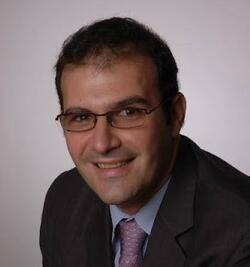
Guillermo Jorge
ARGENTINA
Guillermo Jorge is managing partner of Guillermo Jorge & Associates, a Buenos Aires-based legal and consulting firm specializing in governance and anticorruption issues. In that capacity, he is an active consultant for the U.N., the World Bank, and the Inter-American Development Bank, as well as several Latin American governments in the areas of financial crime, anti-money laundering, and anti-corruption. Jorge is also a professor at San Andres University School of Law, and director of its research center on Control of Corruption, where he recently published a book on corruption asset recovery.Previously, Jorge was a fellow at the International Forum of Democratic Studies at the National Endowment for Democracy in Washington D.C. (2006), a member of the U.N. experts group to develop a technical guide on the UNCAC (2006), and a fellow at Stanford University’s Latin American Studies Program (2002).From 1996 to 2001, Jorge was partner of Luis Moreno Ocampo’s law firm, where he managed anti-corruption programs both in the public and the private sector. During the same period, he was an adjunct professor of criminal law and international human rights.
Jorge holds a law degree from Buenos Aires University and an LLM from Harvard Law School.
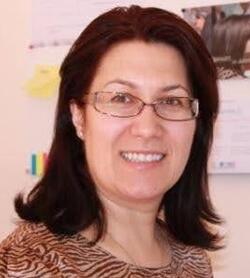
Lusine Hakobyan
ARMENIA
Lusine Hakobyan is the civil society program director at Counterpart International, a global development organization that forges partnerships with communities to invest in food security and nutrition, economic development and building effective governance and institutions.
Hakobyan is responsible for managing and coordinating various aspects of the program, as well as the overall organization of programmatic, administrative and technical assistance to grantees. Previously, she coordinated and managed several initiatives implemented by Counterpart International including the Civil Society Index, Cross Border Cooperation Initiative and the Election Program in Armenia.
Hakobyan received her bachelor and master’s degrees in political science and
international affairs at the American University of Armenia.
Updated December 2013
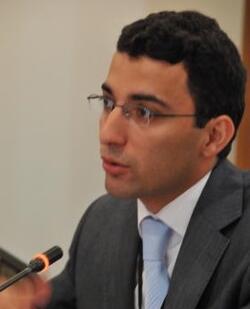
Fariz Ismailzade
AZERBAIJAN
Fariz Ismailzade is executive dean of the Azerbaijan Diplomatic Academy (ADA) within the Ministry of Foreign Affairs. Previously, he was the director of the ADA’s Advanced Foreign Service Program. Prior to joining ADA, Ismailzade worked for 10 years in the NGO sector of Azerbaijan, most recently as director of political programs at the International Republican Institute. Ismailzade has also conducted research at the Center for Strategic and International Studies in Washington, D.C. His research mainly focuses on the geopolitics of the Caucasus region and the affairs of the Commonwealth of Independent State. Ismailzade is a regular correspondent for Eurasianet.org, Transitions on Line, Jamestown Daily Monitor and Central Asia-Caucasus Analyst. He has written on the politics and economics of Azerbaijan and the Caucasus region for the Institute for War and Peace Report, East-West Institute, Analysis of Current Events, Freedom House, CaucasUS Context, Azerbaijan International and Collage. Ismailzade has also presented at international conferences, including the Middle Eastern Studies Association, NATO Advanced Research Workshop in Kiev, Ukraine, and the Association for Studies of Nationalities in New York. Since 2006, he has been a recipient of the International Policy Fellowship Research Award.
Ismailzade earned his BA in political science from Western University in Baku and holds an MA in social and economic development from Washington University in St. Louis.

Sonam Tshering
BHUTAN
Sonam Tshering is an executive officer for the Royal Education Council, an autonomous agency located in the capital city that develops and implements educational reforms. Currently Tshering is overseeing two projects for the council-the establishment of a vocational school and a national university. Prior to joining the Education Council, Tshering was a senior tax officer for the Department of Revenue and Customs, where he drafted the Bhutan tax manual in 1998. As a senior planning officer for the Ministry of Finance, he drafted the 2001 Income Tax Act and Rules in response to increasing income disparities and a growing budget deficit. Tshering was selected to be a part of a small team of civil servants to work on a part of Bhutan’s Comprehensive Development Strategy that focused on private sector development through revision of key economic policies.
Tshering received his BA in economics from Madras Christian College in India, a bachelor of laws degree from the University of Delhi, and a master’s degree in public finance from the National Graduate Institute for Research and Policy Studies in Tokyo.
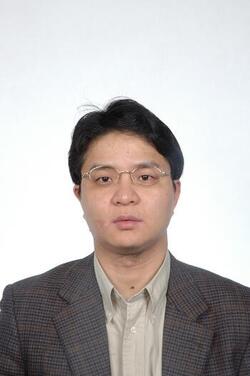
Dajun Zhang
CHINA
Dajun Zhang is a councilor at the Transition Institute, the fastest-growing independent think tank in China. Based in Beijing, the Transition Institute is positioned to contribute greatly to civil society deliberations on such important matters as democratic transition, rights protection, economic liberalization, and the dynamics of change in China. In his capacity at the Transition Institute, Zhang develops strategies, policy, and procedures for the institute and conducts in-depth research into China’s transition dynamics with an emphasis on the interplay of political stalemate, economic liberalization, and societal activism. A leading civil society activist in China, Zhang hosts weekly open forums to facilitate discussions and debates on the issues associated with political, legal, and social change in China. Prior to joining the Transition Institute, he held positions in business and law in mainland China, the United States, and Hong Kong. In 2005, Zhang was a visiting scholar at Yale Law School where he conducted research on political, legal, and economic transition.
Zhang holds a BA in economics from the University of International Business and Economics, and earned an MBA in finance and public policy & management from The Wharton School at the University of Pennsylvania.

Tosi Mpanu-Mpanu
DEMOCRATIC REPUBLIC OF THE CONGO
Tosi Mpanu-Mpanu sits on the governing board of the newly
established African Risk Capacity, a specialized agency of the African Union that provides member states with timely, reliable and cost-effective contingency funding in the event of severe weather shocks. He also serves as an alternate member representing the African region group on the board of the Green Climate Fund, an operating entity of the financial mechanism of the United Nations Framework Convention on Climate Change that will support mitigation and adaptation projects in developing countries.
Mpanu-Mpanu worked as the national coordinator for the Reduced Emissions from Deforestation and Degradation (REDD) in the Democratic Republic of Congo. In that capacity, he was in charge of the preparation and the execution of the annual work plan for REDD in the country. He worked with local stakeholders, the protection of the rights of indigenous people and transparency in the management of forest resources.
Mpanu-Mpanu holds a bachelor’s degree in economics and an MBA in finance and investments from George Washington University.
Updated December 2013

Wafaa Osama
EGYPT
Wafaa Osama is a program officer at the Danish-Egyptian Dialogue Institute (DEDI) in Cairo. She oversees the Promoting Emerging Media and Promoting Alternative Visions programs and acts as a consultant to various Danish organizations working in political participation and media reform. In addition, Osama facilitates and implements, administers, and monitors partnership projects between Danish, Egyptian, and European partners and plays an advocacy role for Egyptian NGOs and organizations. Previously, she worked as a TV producer for Dutch National Television and Journal where she produced stories on Egypt and the greater Middle East. Osama was also an assistant political researcher at al Ahram Center for Political and Strategic Studies, where she was involved in several studies, including one on the marginalization of Egyptian women in political representation and participation.
Osama received a BA in political science from Cairo University and an MA in international relations from Exeter University where she was a Chevening Scholar.

Tamar Zhvania
GEORGIA
Tamar Zhvania is an expert/consultant in electoral issues and joined the United Nations Development Program (UNDP) Electoral Assistance Project in November 2007 as the project manager after seven years of work with domestic NGOs. At the UNDP, Zhvania works projects to enhance the capacity of electoral administration and voter education. She supervises and coordinates activities of project experts and ensures the promotion of UNDP values, including poverty reduction and other Millennium Development Goals. From 2004 to 2007, Zhvania worked as executive director at a well-known Georgian NGO, the International Society for Fair Elections and Democracy (ISFED). She also served as press secretary and public relations director at ISFED from 2000-2004. In 2000, she worked as an ISFED representative in the Central Election Commission (CEC) of Georgia.
Zhvania holds a BA in philosophy and sociology and an MA in sociology from Ivane Javakhishvili Tblisi State University. She is currently a PhD candidate in sociology at the same university.

Rizgar Taha Hammed
IRAQ
Rizgar Taha Hammed is a senior program manager and political party trainer with the National Democratic Institute for International Affairs (NDI) in Erbil, Iraq. Recently, he has conducted training sessions on conflict management, democracy steps, and election campaign management. Hammed covered several campaign strategies and techniques including message development and delivery, GOTV, and plan execution. In his role at NDI, he has participated in efforts to assist Iraqi political parties in their preparation for the 2009 provincial election, an important milestone in the democracy-building process. He is currently involved in preparations for an ambitious youth empowerment program as well as the upcoming parliamentary elections slated to take place in late 2009. Previously at NDI, Hammed worked as director for the organization’s Resource Center in Kirkuk, Iraq. He was the team leader in the Democracy Dialogue Activities program at Research Triangle International (RTI), where he worked to promote democracy in Iraq after the fall of Saddam Hussein. Hammed also served as senior community development officer on the Iraq Community Action Program for ACDI/VOCA-IRAQ, a nonprofit organization that promotes broad-based economic growth and the development of civil society.
Hammed holds a BS in agricultural sciences from Mosul University.

Driton Qeriqi
KOSOVO
Driton Qeriqi is a media law advisor at the International Research and Exchange Board (IREX). He currently works on the USAID Strengthening Independent Minority Media (SIMM) program, a three-year project focused on developing minority TV and radio station networks, awarding targeted grants for news and factual program production, providing local and international consultancy on program production and technical quality, business skills, program scheduling and advertising sales. In his capacity as the media law advisor at IREX/SIMM, Qeriqi provides legal advice to members of the media by addressing issues that may arise in the relationships between media members and government regulators. He participates in working groups drafting new laws, rules, and regulations related to media, and prepares comments and suggestions regarding government media-related documents. Qeriqi also conducts mediation tasks, addressing SIMM partners’ concerns at the Council of the Independent Media Commission (Kosovo media regulator) especially during the ongoing re-licensing process. Before IREX, he worked as a program contributor at the Media Task Force of the Stability Pact for South-Eastern Europe and was a legal advisor in the Office of the Temporary Media Commissioner. He speaks Albanian (native), Serbian, and English.
Qeriqi received his diploma in law from the University of Prishtina.

Malcolm Wleemogar Joseph
LIBERIA
Malcolm Joseph is the executive director of the Center for Media Studies and Peace Building, a leading NGO in Liberia that works to strengthen the media and consolidate peace, democracy, human rights and development. Joseph was one of the architects of the Freedom of Information Law that passed in 2010 in Liberia. He is presently working to educate and inform the public and media on the law’s provisions.
As a professional journalist and civil society activist for more than a decade, Joseph has been vice president of the Press Union of Liberia and has been active with regional and international organizations including the West African Journalist Association where he served as vice president and the International Federation of Journalists. Joseph was a World Press Freedom Day fellow in 2011 as well as a fellow for the Annenberg Oxford Media Policy Summer Institute. In September 2011, Joseph received the Windhoek +20 Coalition award for his years of dedication to promoting freedom of media and information in Liberia and Africa at the Pan African Conference on Access to Information in South Africa.
Joseph holds a BA in mass communication and an MA in international relations from the University of Liberia.
Updated Septemeber 2012
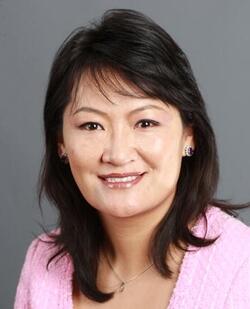
Oyuntsetseg Khurts
MONGOLIA
Oyuntsetseg Khurts works as general counsel to the Millennium Challenge Account-Mongolia, which aims to implement the compact between the Millennium Challenge Corporation and the Government of Mongolia. She is also an elected member of the Ulaanbaatar Counsel of Representatives where she serves as the head of the Human Rights Committee. Khurts has been a lecturer at the Academy of Management since 1989. Previously, she served as advisor to the deputy prime minister of Mongolia and the executive director of Consensus Center, a Mongolian NGO. In 2004, she founded a law firm called Mon Lex Co. Khurts is an active member of the Mongolian Women Lawyers Association (MWLA), serving as the executive director as well as a member of its steering committee. With the MWLA she successfully lobbied for laws against domestic violence and for the protection of children’s rights. Khurts speaks Mongolian, English, Russian, German, and Polish.
Khurts received her LLM from Moscow State University and also studied at Ludwig Maximilian University in Munich, Germany. She is currently a doctoral candidate at the Academy of Management in Mongolia.

Bishnu P. Adhikari
NEPAL
Bishnu P. Adhikari is a democracy and governance specialist with the United States Agency for International Development (USAID)-Nepal.In this capacity, he serves as the head technical advisor to the team leader of Peace, Democracy, and Governance division in all aspects of program design and implementation. His work with the Peace, Democracy, and Governance Division focuses on rule of law, electoral, and political processes reforms in civil society. Adhikari also currently serves as the president of the Foreign Service National’s committee, which provides management advice to the senior team in charge of USAID-Nepal. Prior to joining USAID in 2000, Adhikari worked for four years as a lecturer of political science at the Center of Nepal and Asian Studies at Tribhuvan University in Nepal. He also served as the sub-editor for Sri Sagarmtha, a national daily newspaper in Nepal, where he edited the political pages. He is the winner of the prestigious Mahendra Vidhybhusan Gold Medalfor securing the highest rank in the MA degree examination in political science.
Adhikari holds a BA in political science from Manipur University (India) and an MA in political science from Tribhuvan University (Kathmandu, Nepal).

Thelma Ekiyor
NIGERIA/GHANA
Thelma Ekiyor has over 15 years of experience working in the development sector and consulting/advising inter-governmental agencies such as the United Nations, the Africa Union as well as regional economic communities. Ekiyor has instrumental in launching three renowned institutions in West Africa, which include: the TY Danjuma Foundation, a private foundation aimed at improving the quality of life of Nigerians; the West Africa Civil Society Institute, established by the Open Society Initiative and the George Soros Foundation to improve the strategic partnership between civil society, government, and the private sector in West Africa; and the Women Peace and Security Network Africa which promotes women's strategic participation and leadership in peace and security governance in Africa.
Ekiyor recently co-founded a social enterprise initiative called Afrigrants, which aims to channel resources to support targeted social development on the African continent and sits on the board of a number of acclaimed organizations. She has written several books and is a recognized commentator on African development, peace and gender issues. Ekiyor was awarded the “Women of Recognition” award for her contributions to promoting women’s empowerment.
Ekiyor received an LLB with a specialization in international law from University of Buckingham (Buckinghamshire, UK). She is currently completing an MBA from Imperial College, London.
Updated Septemeber 2012

Abiodun Kolawole
NIGERIA
Abiodun Kolawole is a civil rights activist, grassroots organizer, and journalist. As a leader in Nigeria’s student and pro-democracy movements, Kolawole used his experience to help form the United Action for Democracy, a coalition of various human rights, labor, and pro-democracy groups. He began the Initiative for Rural Empowerment and Popular Participation (IREPP), an advocacy organization created to improve civil society in Nigeria. As executive director of the IREPP, Kolawole is focusing on organizing and training members at the grassroots level, particularly women and young people. In addition to his work with the IREPP, he is the publisher and managing editor of the Grassroots Monitor and an investigative writer for a web-based newspaper. From 2001 to 2006, Kolawole served as a research officer for the Center for Constitutionalism and Demilitarization. He was also a Reagan-Fascell Democracy Fellow at the International Institute for Democratic Studies in Washington, D.C. in 2004. Kolawole has been a devoted activist since the early 1990s. In 1997, he was exiled to the Ivory Coast for three years as a result of his anti-military activities.
Kolawole received his bachelor’s degree in sociology from the University of Lagos in 1992.

Guillermo Gonzales-Arica
PERU
Guillermo Gonzales-Arica is the associate director of the Global Center for Development and Democracy. The Center was founded by former Peruvian president Alejandro Toledo and strives to build and promote a social agenda for democracy in Latin America by reducing poverty and inequality. Before his current job, Gonzales-Arica worked as a public servant in Peru for ten years. He held the positions of chief of staff, press secretary, and human rights affairs advisor to the president of Peru. Gonzales-Arica has expertise in electoral strategy and communication. In 1995, he worked as deputy legal representative in the presidential campaign of Javier Perez de Cuellar. And in 2001, he was a member of the presidential campaign team of Alejandro Toledo. Gonzales-Arica also worked as a journalist for Caretas, the main political magazine of Peru for seven years. In 1999, he founded the Association Prensa Libre (“Free Press”), which denounced human rights violations and press harassment during the authoritarian regime of Alberto Fujimori in Peru.
Gonzales-Arica has a BA in law from the Pontificia Universidad Catolica del Peru and a master’s degreein public administration and international relations from Syracuse University (Syracuse, New York).

Carolyn Mercado
PHILIPPINES
Carolyn Mercado is an attorney and director of the Law and Human Rights Program at the Asia Foundation in the Philippines. In this position she directs the Asia Foundation’s fundraising efforts and develops, implements, and monitors projects in the areas of law and human rights. Mercado has also served as a temporary consultant to the Asian Development Bank on the Governance in Justice Sector Reform Program project, the Strengthening the Independence and Accountability of the Philippine Judiciary project, the Legal Literacy for Supporting Governance project, and the Sector-Wide Justice Reform Program in the Philippines. Previously, she served as a consultant in Manila for the European Union, World Bank, the United Nations Development Program, the International Maritime Organization, and the Philippines Department of Environment and Natural Resources. Mercado lectured on environmental law at Ateneo de Manila University, San Sebastian College of Law, and the Development Academy of the Philippines. Mercado is a Hubert Humphrey Fellow in international environmental law with the University of Washington and a European Union Scholar in environmental resource management at the Maastricht School of Business in the Netherlands.
She earned a BA in political science from the University of the Philippines and an LLB from the University of the Philippines College of Law.
Updated Oct. 1, 2015

Vasily Khokhlov
RUSSIA
Vasily Khokhlov is chairman of the Social Democratic Union of Youth of St. Petersburg, which he joined as a student in 2002. First as an activist and later as a member of the board, he organized and participated in educational seminars and supported various programs aimed at improving human rights in Russia. Khokhlov has also organized and participated in a number of international conferences for young political scientists. In 2004, he was appointed senior teacher of political science at The Marin Technical University of Saint Petersburg. In 2006, Khokhlov received a Chevening Scholarship for a year-long study at the London School of Economics and Political Science.
Khokhlov has a BA in political science from St. Petersburg State University and an MSc in global politics from the London School of Economics and Political Science. He is currently a PhD candidate in political science at St. Petersburg State University.
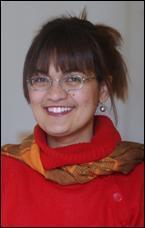
Judith February
SOUTH AFRICA
Judith February is the head of the Institute for Democracy in South Africa’s (IDASA) South African Good Governance program and has been working with IDASA since 2000. At IDASA, she focuses on corruption and its impact on governance, parliamentary oversight, institutional design and general political analysis. February was a member of the independent ad-hoc panel to evaluate the effectiveness of South Africa's parliament, which released a report on their findings in January 2009. She is particularly interested in law as a tool for advocacy, the intersection between law and politics, and the development and interpretation of socio-economic rights jurisprudence in South Africa. February also consults on South Africa for a New York-based group as part of their Stability Index on 25 developing countries around the world. Previously, she was a practicing attorney in Cape Town from 1996 to 2000. In 2008, she was listed in Financial Mail’s “Little Black Book” of 300 black professionals and in the MtN/Mail and Guardian’s 300 women in South Africa. Her column “Between the Lines” appears in the Cape Times newspaper (South Africa) fortnightly.
February studied law at the University of Cape Town where she obtained her BA, LLB, and LLM in commercial law.

Rukshana Nanayakkara
SRI LANKA
Rukshana Nanayakkara is deputy executive director of Transparency International Sri Lanka (TISL), the Sri Lankan chapter of the global movement against corruption. Through research, advocacy and capacity building, TISL fights corruption through raising awareness of its devastating effects and motivating individuals and groups in the public and private spheres to be proactive in taking steps to fight it. Nanayakkara is also a visiting academic at the University of Colombo, Sri Lanka and works as a trainer on human rights and governance. Previously, he held the position of project director at TISL. Prior to TISL, Nanayakkara worked as a lecturer in law at the University of Colombo and a visiting lecturer in human rights at the University of Colombo and the Sri Lanka Foundation Institute. Nanayakkara has published a number of papers on corruption, governance, and human rights.
He received an LLB from the University of Colombo, an LLM in human rights from the University of Hong Kong, and an LLM in international and comparative law from George Washington University where he was a Junior Fulbright Scholar.

Chéma Gargouri
TUNISIA
Chéma Gargouri founded a community development NGO called the Tunisian American Association for Management Sciences (TAAMS) in 2006. TAAMS operates in very poor areas of Tunis and works to combat poverty, develop a sense of civic responsibility, improve quality of life for all social classes, address gender and education, and connect people for increasing knowledge and reform. In addition to literacy classes and vocational training, TAAMS collaborates with international organizations on programs serving at-risk youth in the local community and enhancing women’s entrepreneurial capacities through micro-lending. Gargouri has also worked in the commercial section at the British embassy in Tunisia and at the International Executive Service Corps (IESC), a USAID-funded non-profit focused on economic development. In 1998, Gargouri established a privately-owned business development services company called the Center for Applied Training (CAT). As a local subcontractor, CAT has been actively involved in the management of many U.S Department of State-funded programs in Tunis.
Gargouri received her university degree in 1991 from the Higher Institute of Foreign Languages in Tunis.

Kateryna Ryabiko
UKRAINE
Kateryna Ryabiko is a democratic governance officer at the Office for Democratic Insitutions and Human Rights, a specialized institution by the Organization for Security and Co-Operation in Europe that focuses on elections, human rights, and democratization.
Previously she was the elections and political processes advisor at the U.S. Agency for International Development (USAID) where she led the development of technical assistance projects to advance democratic achievements in Ukraine and promote transparent electoral processes. Before joining USAID, she worked for international organizations, private sector consultancies and government institutions. Ryabiko has worked as a program officer for the Regional Networking Project at Freedom House in Budapest, Hungary. She has also worked as a government relations officer at American Continental Group, a Washington D.C. lobbying firm. Her interests include best practices in the development of accountable political systems and enforcement of representative democracy.
Ryabiko holds a BA in international business from Kyiv State University of Trade and Economics and a master’s in public administration from State University of New York at Binghamton.
Updated December 2013

Andriy Shevchenko
UKRAINE
Andriy Shevchenko is the Ukrainian Ambassador to Canada. He is a 3-time member of the Ukrainian Parliament, a journalist and a civil activist.
He was one of the founders of the 5th Channel - the first news TV-channel in Ukraine - and was the face of the Orange Revolution for TV viewers. Prior to that, Shevchenko was a leader of the journalists’ movement against censorship. In 2002, he became the first chairman of Kyiv Independent Media Union. In 2005, Reporters Without Borders (Vienna) awarded him with the Press Freedom Award.
Shevchenko won seats in the Parliament in 2006, 2007 and 2012 with Yulia Tymoshenko’s party ‘Batkivshchyna.’ He served as the Chairman of the Free Speech Committee and the First Deputy Chairman of the Human Rights Committee. Shevchenko is the author of the Law on Access to Public Information in Ukraine.
Shevchenko received an MA in journalism from Kyiv National University. He was a Yale University World Fellow in 2008 and a Draper Hills Stanford Fellow in 2009.
Updated Oct. 1, 2015.
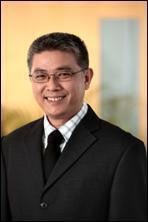
Dung Tien Luu
VIETNAM
Dung Tien Luu is an attorney with YKVN, a leading Vietnamese law firm where he has advised on corporate governance, investment, and international transaction. Currently, Luu provides strategic advice to a number of Vietnamese legal and judicial institutions as well as the UNDP, EU, Denmark, Sweden and other bilateral donors in Vietnam. In this capacity he provides strategic advice on joint government-donor development programs to support legal and judicial reforms, which promote the rule of law and access to justice. Previously, Luu worked for UNDP Vietnam where he managed the formulation and implementation of UNDP programs that supported the promotion of the rule of law, access to justice, and human rights. Additionally, Luu has written a number of published articles in both Vietnamese and English and has participated in several study missions to Cambodia, Hungary, Russia, Thailand, and the United States.
He received an LLB from Kubansky State University College of Law (Russian Federation) and an LLM from the University of Iowa where he was a Fulbright Scholar. He is currently a PhD candidate in law at the Institute of State and Law (Hanoi, Vietnam).

John Sangwa
ZAMBIA
John Sangwa is an advocate for the high court of Zambia and a lecturer at the School of Law at the University of Zambia. He is active in constitutional issues and interested in ways the rule of law can promote democracy and development. Sangwa is a senior partner at Simeza, Sangwa & Associates and the vice chairman of Legal Resources Foundation (LRF). LRF is the only NGO that provides free legal services to victims of human rights abuses in Zambia. Sangwa was previously appointed chairman of the Media Law Reform Committee by the government of the Republic of Zambia and was charged with identifying all statutory provisions which undermine media freedom. He has also represented the country’s independent newspaper and several Zambian political leaders. Sangwa represented President Kenneth Kaunda on appeal when he was declared stateless by a High Court judgment. Since 2002, he has been representing former president Frederick Chiluba against various offences committed during his ten year rule.
Sangwa holds an LLB and an LLM from the University of Zambia.
